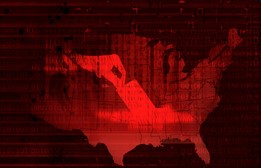
New legislation introduced by U.S. Reps. Eliot Engel (D-NY) and Michael McCaul (R-TX) last week — the Rewards for Providing Information on Foreign Election Interference Act — would expand an existing State Department program that rewards people for information on foreign election interference.
Pointing to intelligence community assertions that Russia attacked recent U.S. elections in 2016 and 2018, Engel said it was a given that it would try to manipulate the presidential election this year, as well. To combat this, the bill would expand the State Department’s Rewards for Justice program in a way that would allow rewards for any informants who supply information leading to the identification or location of foreigners interfering in a U.S. election.
“It’s an established fact that Vladimir Putin interfered in our last presidential election to tip the scales in Trump’s favor,” Engel said. “We must be clear-eyed about that so we can respond effectively in the future. But, instead of acting to punish the attackers and strengthen our election systems, President Trump praises Vladimir Putin and rewards him with strategic victories. He’s actively invited foreign meddling to help his chances in the 2020 election. Yet too many of the President’s Republican allies still refuse to acknowledge these clear facts in the belief that it will serve their own political interests.”
Since its inception in 1984, the Rewards for Justice program has paid rewards of more than $150 million. Its original intent — to combat international terrorism — has been expanded several times since its creation, however, to include payments for information linked to narcotics offenses and war crimes, for example.
“At a time when the White House cares more about narrow partisan politics than national security, Congress must step in to protect our democracy,” Engel said. “The bill I’m introducing today would incentivize people to turn over information about foreign election interference, supplementing the ample tools Congress has given the executive branch to address this challenge,” Engel said.

